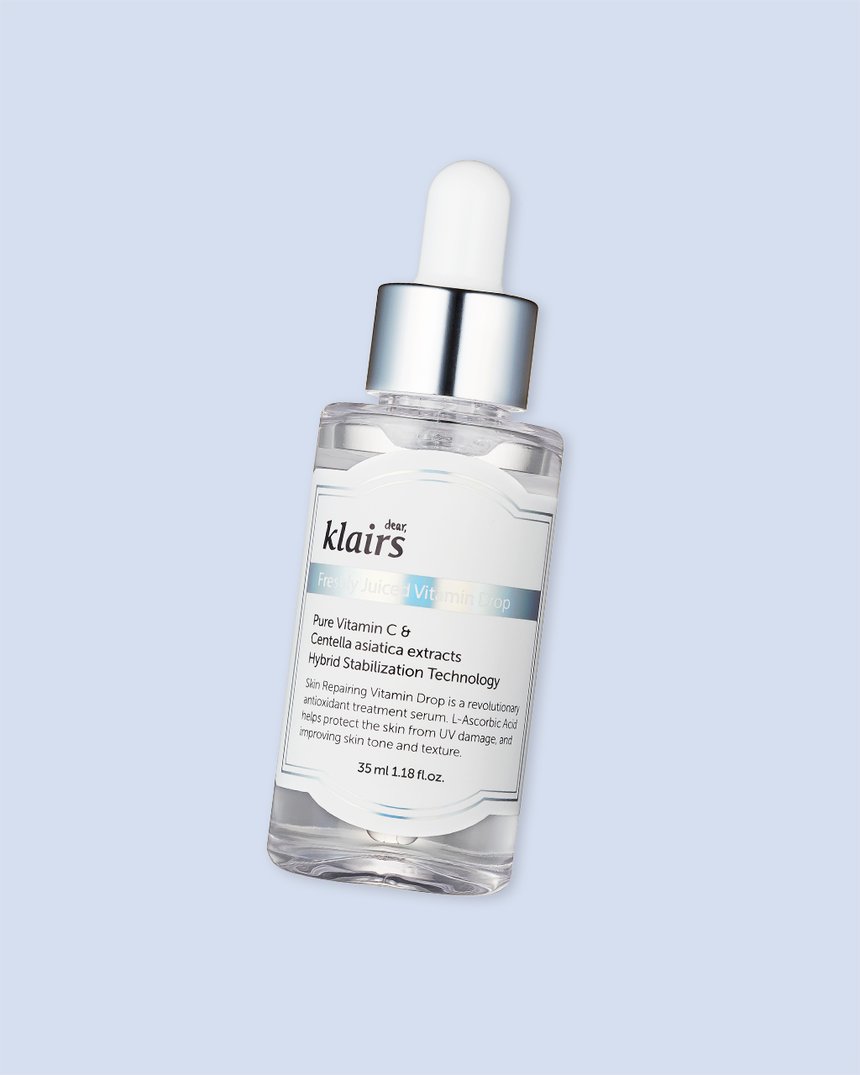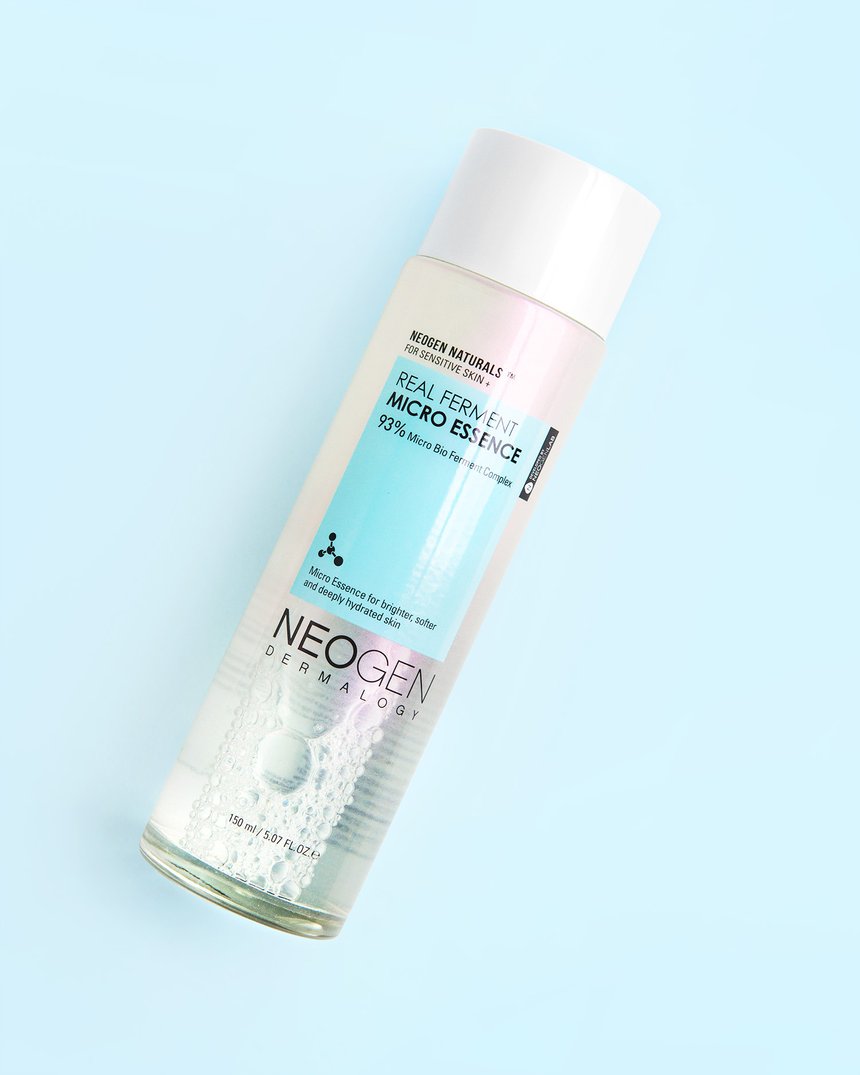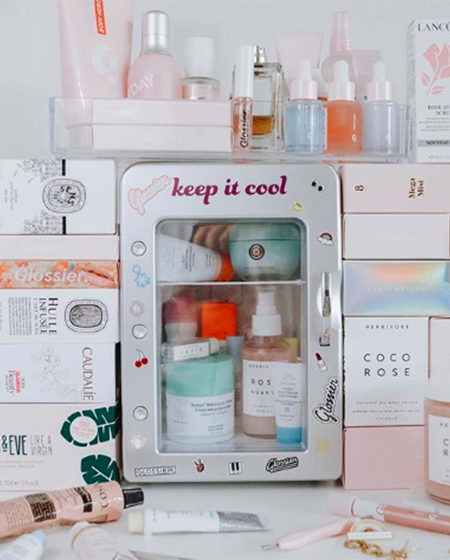Ever wonder where to store skin care? Yes, certain products work better in the fridge but not all products need to be cold. Here’s your complete guide.
If you’re fully indoctrinated into the world of Korean beauty (or if you watch a lot of Korean dramas), then you probably already know that your skin care probably shouldn’t be kept in your hot, steamy bathroom, but that leaves a remaining question: where should these products be stored? Today, we’re breaking down which products should go where to get the most effective product, for longer.
But first, why shouldn’t you keep your products in your hot, steamy bathroom?
Your bathroom is the most likely place that you keep the majority of your skin care products. Unfortunately, this isn’t the optimal place to keep them for a variety of reasons. Think about all that goes on in your bathroom: It’s chock full of bacteria. The steam from your shower actually makes it worse, making your bathroom an oasis for this bacteria to multiply and grow…probably not what you want all over your face.
The heat can also affect the look, feel, smell, and effectiveness of products. Warm temperatures and sunlight can cause certain ingredients to break down, oxidize, curdle, or melt. The reason why skin care needs to be pumped full of preservatives is to ensure shelf lives last longer than even a week. When we spoke with Lab Muffin, she told us that the reason that she prefers not to do DIY skin care is that it’s extremely difficult to keep natural skin care because she does not want to use her own preservatives. Keeping your products in cool, dry places and out of direct sunlight actually helps them to last longer after opening.
So, which products should you keep in the fridge?
There aren’t any steadfast rules to keeping products in and out of the fridge, just guidelines for getting the most out of your products.
Vitamin C (like that in the Klairs Freshly Juiced Vitamin C Drop) and retinoids (like Dr. Different’s Vitalift A-Forte) are heat and light sensitive, meaning they break down and oxidize faster if stored in places with lots of light or heat. This is why most vitamin C and retinoid serums are packaged into dark bottles. To ensure longer product life, these should definitely be stored in the fridge. It won’t just make them last longer, but it’ll keep them effective for longer, and without a weird smell.
Anything that has live-active cultures should definitely go in the fridge. And, if you bought it in a store, it probably was already stored in a fridge (this is a good indication, that’s where it should stay). Skin care that is probiotic or with “live cultures,” have bacteria living in them—helpful bacteria, not steamy bathroom bacteria. To keep this “good” bacteria healthy, you need to keep it in its optimal ecosystem. Hence, the fridge.
Similarly, anything with 100% natural ingredients or natural or organic ingredients as the first ingredient should probably be kept in the fridge. Chances are, if you bought this product, it will still have some preservatives, but likely less and therefore a shorter shelf life. So it’s better to keep this in the fridge to help it last as long as you can.
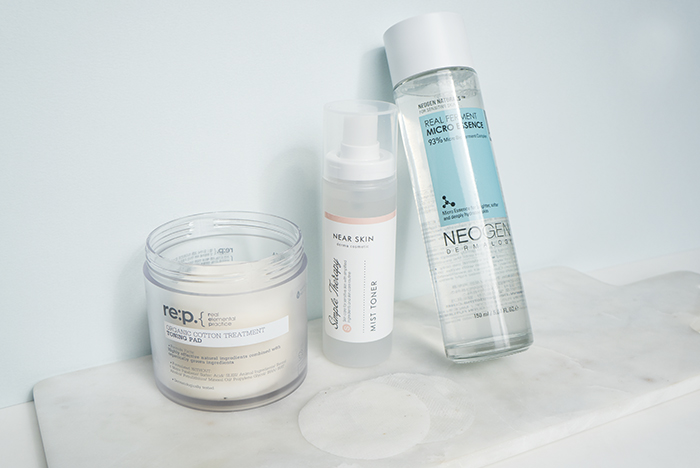
Water based toners, mists, and sheet masks don’t have to be stored in the fridge, but if you’re keeping your other skin care in there, then why not. The cooling effect of these products can feel great on the skin. It can also help with de-puffing and soothing irritation.
Not just skin care needs to go into the fridge. Nail polishes are better stored in the fridge because they are more likely to separate if they’re stored out in the open. Perfumes can lose or change smell if they’re left out in the open, due to molecule break down. And lipsticks will straight up melt if they’re left out in the heat. Ever left a lipstick in a car on a summer day? Yup, you know what we’re talking about.
Which products should be stored at room temperature?
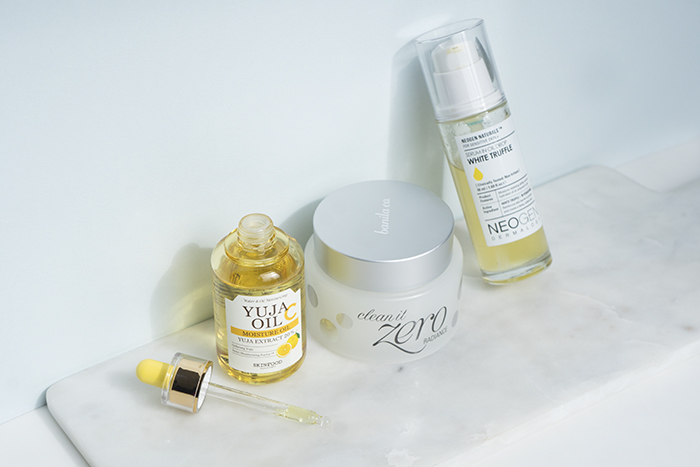
Cooler doesn’t always mean better in skin care. Oil-based products like serums can become cloudy when they’re stored in the fridge. They can also cause the oil and water ingredients in the product to separate, rendering them useless. Also probably better to keep your clay masks out of the fridge, unless you want to start digging through them with a baby shovel.
So, remove that Banila Co Clean It Zero Cleansing Balm Nourishing from your fridge!
What else should you watch out for?
No product should be stored in direct sunlight. And it’s always better to keep them in cool dry places. Not only that, you also probably don’t want extreme heat or cold for any of your products (not all fridges are created equal). You definitely don’t want to be putting your products in the freezer, and likewise, they shouldn’t be sitting right next to your heater in the dead of winter. This can cause active ingredients to break down. When in doubt, most products are tested by cosmetic manufacturers according to specific climate regulations by the World Health Organization and so products bought locally should last well enough at room temperature.
If you’re storing products in the fridge, make sure that they’re sealed properly and if possible, keep them away from food. The last thing you want is that refrigerator smell getting into your products. You also want to make sure you’re protecting your products from excess moisture. If you’re not going out and buying a cosmetics fridge just for your skin care (cosmetic fridges are better at regulating temperature since they’re small, and have no food), consider keeping your skin care in sealed plastic bags.
Heat rises, so if you do insist on keeping your skin care in your bathroom, a low drawer or under your sink (if it’s dry down there), is better than on the top shelf of your cabinet where more heat will get to.
The Bottom Line
We’re not advocating going out right now and buying a cosmetics fridge (though it’s not the worst idea). But when you’re paying hundreds of dollars for your skin care, you want it to last as long as possible.


